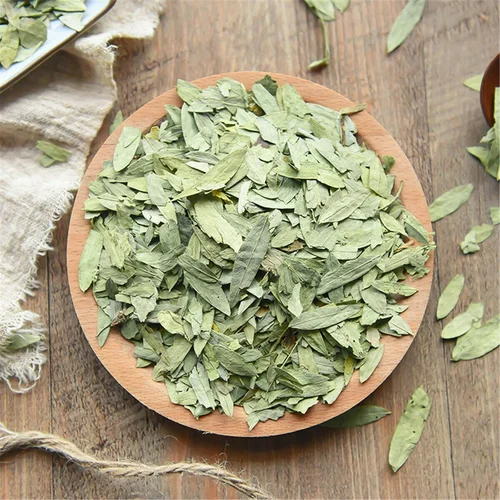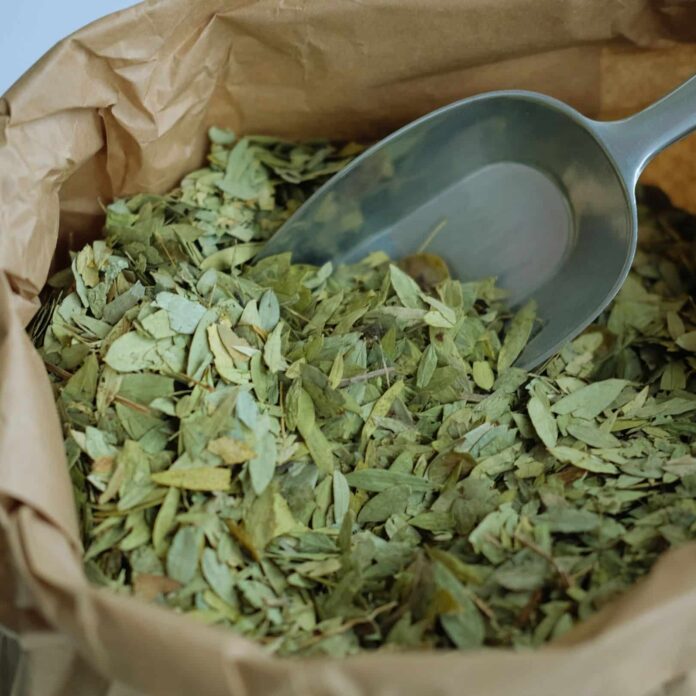INTRODUCTION:
Senna leaves come from plants belonging to the Senna genus, primarily Senna alexandrina (also known as Cassia angustifolia). These leaves are well-known for their medicinal properties, particularly as a natural laxative. Senna has been used traditionally in herbal medicine to treat constipation and cleanse the digestive system.The leaves contain compounds called sennosides, which stimulate bowel movements by irritating the lining of the colon. Due to their effectiveness, senna leaves are commonly found in over-the-counter laxative products and herbal supplements.

English: Senna Leaves
Hindi: सन्ना पत्तियाँ (Sanna Pattiyan) / राजणी (Rajani)
Sanskrit: अम्लकी (Amlaki) / परिपति (Paripati)
Tamil: சென்னா இலை (Senna Ilai)
Telugu: సెన్నా ఆకు (Senna Aaku)
Kannada: ಸೆನ್ನಾ ಎಲೆ (Senna Ele)
Malayalam: സെണ്ണ ഇല (Senna Ila)
Bengali: সেনা পাতা (Sena Pata)
Marathi: सेन्ना पाने (Senna Pane)
Gujarati: સેના પાન (Sena Paan)
Urdu: برگ سنا مکی
Arabic: أوراق السنا (Awraq al-Sana)
French: Feuilles de Séné
Spanish: Hojas de Sen
Chinese (Mandarin): 番泻叶 (Fān xiè yè)
HEALTH BENEFITS:

Stimulates bowel movements:
The sennosides in the leaves irritate the lining of the bowel, causing the muscles to contract and push stool through the colon.
Softens stool:
They also alter how the colon absorbs water and electrolytes, increasing the water content of the stool to make it softer and easier to pass.
Medical procedures:
Senna is often used to clear the bowels before medical procedures, such as a colonoscopy.
Hemorrhoids:
By relieving constipation and preventing the straining that often aggravates hemorrhoids, senna may help to ease the symptoms.
Skin health:
Due to its potential antimicrobial and anti-inflammatory properties, senna leaf paste is traditionally used to treat skin infections like acne and ringworm.
Hair health:
In traditional medicine, a paste made from senna powder and water is used as a natural hair conditioner to improve shine and combat dandruff.
Weight Management:
By promoting bowel regularity and detoxification, senna may assist in temporary weight loss and reducing bloating.
Antimicrobial Properties:
Senna leaves have mild antimicrobial effects that can help inhibit the growth of certain bacteria.
Anti-inflammatory Effects:
Some compounds in senna leaves can reduce inflammation, potentially soothing digestive discomfort.
Treatment of Hemorrhoids:
By relieving constipation and easing bowel movements, senna can help reduce the strain that worsens hemorrhoids.
SIDE EFFECTS:

Abdominal pain and cramps:
This is one of the most common effects and is caused by the irritation of the intestinal muscles that stimulates a bowel movement.
Diarrhea and nausea:
Excessive use of senna can cause diarrhea, which can lead to dehydration. Nausea may also occur.
Harmless urine discoloration:
While taking senna, your urine may turn a reddish-brown color. This is a harmless side effect that disappears after you stop using the laxative.
Electrolyte imbalance:
Long-term use of senna can deplete the body’s store of essential electrolytes, especially potassium. This can lead to serious health problems, such as muscle spasms, irregular heartbeats, and weakness.
HOW TO USE:

As a Tea (Infusion):
Take about 1 to 2 grams of dried senna leaves (roughly 1 teaspoon).
Boil in about 1 cup (250 ml) of water for 5–10 minutes.
Strain the leaves and drink the tea.
Best taken before bedtime to stimulate bowel movement the next morning.
Senna Powder:
Mix a small amount (usually 1 gram or less) of senna leaf powder in water or juice.
Drink once daily, preferably in the evening.
Senna Capsules/Tablets:
Follow the dosage instructions on the package or as prescribed by a healthcare provider.
Important Tips:
Use senna only for short-term relief (usually not more than 1 week).
Do not exceed recommended doses to avoid cramps or diarrhea.
Drink plenty of water to stay hydrated.




